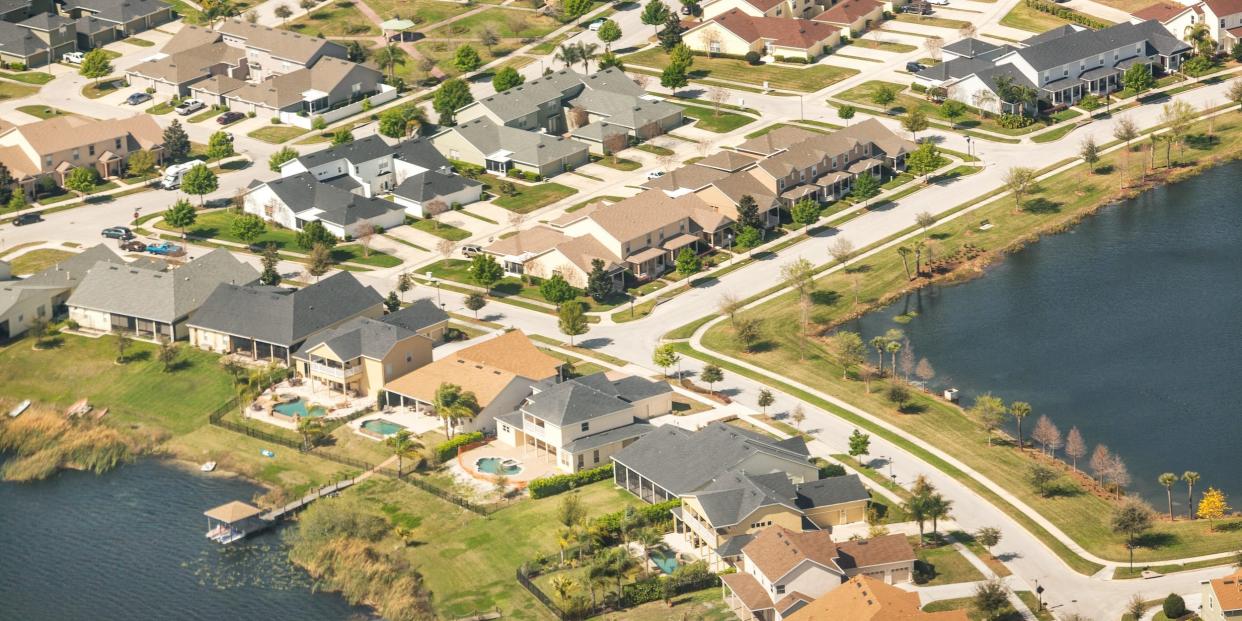2 states where home prices are falling because there are too many houses and not enough buyers

Despite a US housing shortage, Florida and Texas have too much supply, Redfin found.
The states accelerated construction to take advantage of pandemic-era demand.
But many are now priced out, while Florida's rising insurance costs are pushing down demand.
A lack of US housing has fenced off most would-be buyers, but two states are dealing with the opposite problem — an overflow of homes.
Redfin has found that properties in Florida and Texas are stagnating on the market, as demand is shifting away from these areas.
Cape Coral and North Port, Florida, saw the country's biggest surge in homes for sale, with volumes up about 50% from a year ago in March. The number of homes also jumped 25% in McAllen, Texas, Redfin reported Thursday.
Both states have been building more homes than any other part of the US, in a race to make room for pandemic-era newcomers.
"Two years ago, the North Port metro was one of the most competitive housing markets in the country because it was affordable for remote workers, and there was a shortage of homes for sale, but none of those things are true today," Eric Auciello, a local Redfin sales manager, said in the report.
Instead, buyers are now finding themselves priced out, and price growth has slid as a result. Of the country's 10 metros where sellers are most likely to slash listed prices, seven are in these two states.
"Out-of-town homebuyers no longer see Florida as a place to get amazing value," Auciello said. "Now they're moving to North Carolina or Tennessee to get a good deal. Many local blue-collar workers have been priced out of homeownership, too."
Adding to Florida's headwinds is a rising insurance crisis, with close to three-quarters of homeowners in a Redfin survey noting rising insurance costs or changing coverage.
This has become a growing concern for the national housing market, as worsening climate risks amplify costs to insurance providers. A September study from First Street calculated that amid rising premiums and the loss of coverage in certain areas, home values could significantly erode.
"We're at an inflection point," Auciello said. "A hefty insurance bill isn't always a big deal for a luxury buyer, but it can be a really big issue for someone buying a waterfront home on a smaller budget."
Both markets are also exposed to the same strains as the wider housing environment. High mortgage rates, now at about 7%, are keeping many homeowners from upgrading to a better home.
Nationally, the stubborn mortgage highs caused new listings to fall 6% month over month in March, marking the biggest drop since January 2022, Redfin said.
Meanwhile, a shortage of homes has pushed the median US sale price 5% year on year to $420,357. That's only 3% below a record-high price of $432,496.
Read the original article on Business Insider
